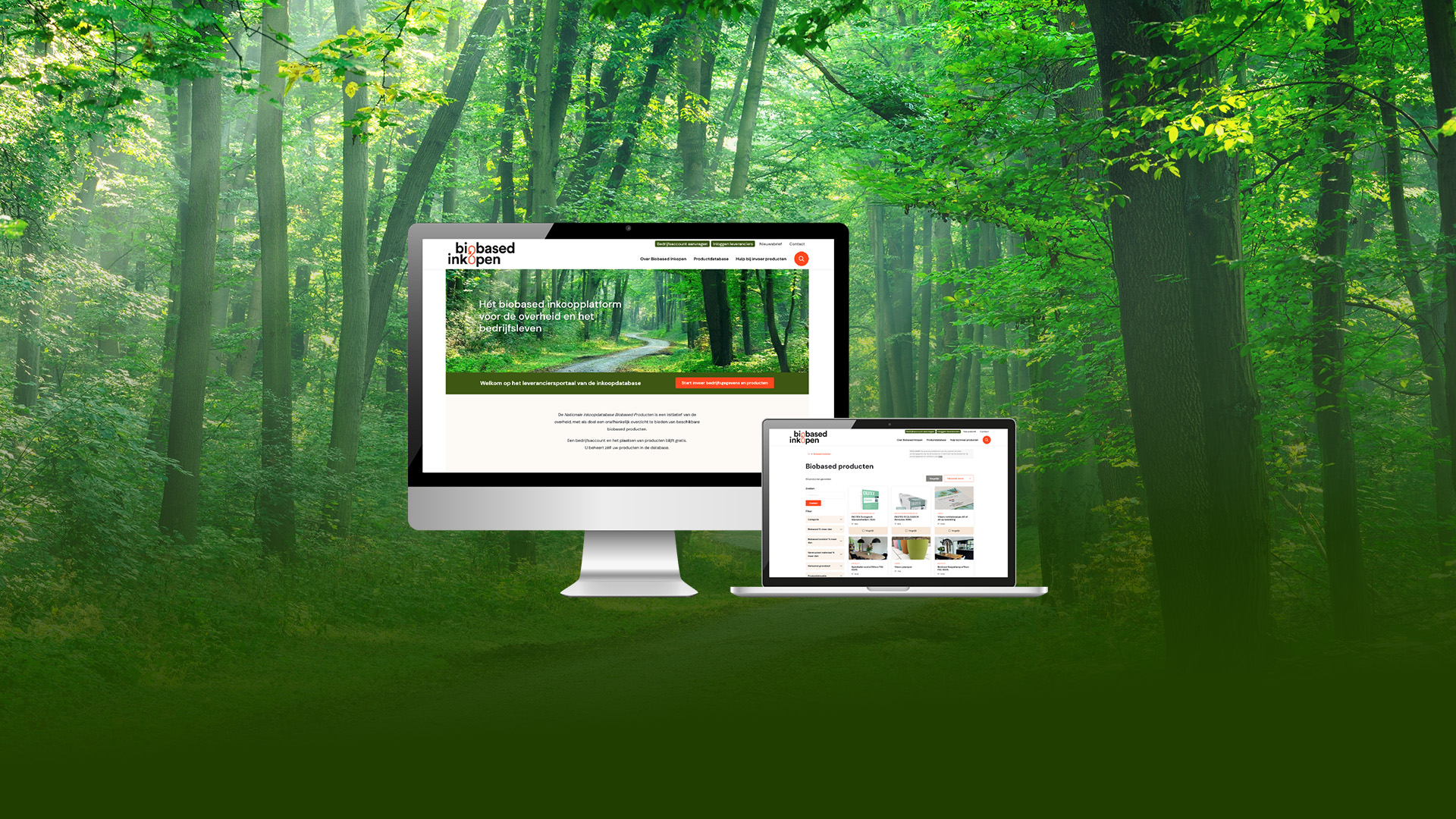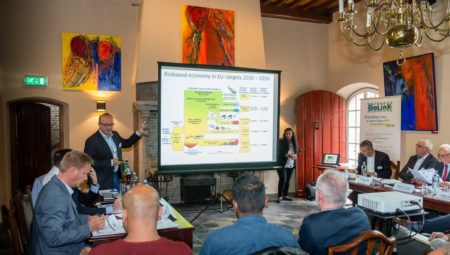Behind the set-up and operation of this database, there is a joint organisation that must monitor the course, quality and operation. Three parties are responsible for this. Who are they and what is their role?
Market creation

“New bio-based products are added every day. There are now far more than people realise”, says Willem Sederel, chairman of the Circular Biobased Delta Foundation, the driving force behind the implementation of the database “We must give buyers insight into what is available. Not with pricing tables, but with information about what it can save in terms of the environment and climate.
“We therefore see this database as an essential tool for market creation. It fits in with the focus of Circular Biobased Delta, which ultimately aims to ensure that bio-based materials that are developed are actually used.”
This happens more often in some sectors than others. The road construction sector is often in the lead. But there too, there is a great need for reliable and up-to-date information, for example on how sustainable a product really is. Whether it is certified or not. And what performance and lifespan can be expected. However, in such a new market, it is difficult for manufacturers to provide experience data. “That is why we are also pleased with provinces and governments that buy all kinds of things and often take on the role of first customer.”
This is important because many companies are wary of purchasing innovative products that have not yet proven themselves in practice. Willem: “We see that you can also deviate from the standard and build some extra guarantees into the design. We all realise that it costs a little more money at the moment, but also that this is unavoidable in order to gain experience. Moreover, we are entering a period in which it is no longer just about the direct monetary costs of products, but also about the social costs associated with them. We want to get away from that. It is no longer acceptable to say that a product costs €1.50 while it delivers a euro’s worth of trash because of by-products or toxicity. The real cost is then € 2.50. If I can buy a biobased product that costs € 2 and only causes 5 cents of environmental damage, that is much cheaper. That is the approach we have to take more and more. Having this insight is only possible if we have a broad and up-to-date overview of products.”
Quality control
For the database to be useful in tenders, the information it contains must meet a number of criteria. It must be reliable, as complete as possible and regularly updated. Quality control is the task of the independent editorial board.

“We do not want any sales talk or greenwashing,” says Douwe-Frits Broens, portfolio manager of the Centre of Expertise Biobased Economy (CoE BBE) and chairman of the editorial board, consisting of experts from six organisations active in the bio-based economy.
“In the first instance, we as editorial board have indicated which definitions and rules of play we are using. Everyone has to abide by those,” says Douwe-Frits. “For example, there are accepted European standards for determining whether and to what extent a product is biobased or not. We also tell the companies exactly how they have to show their bio-based content in the database: the share of plant origin in percentage by weight.”
Responsible for the quality of the information in the database are the companies themselves. “They also sign for this. That is stated in the terms of use of the database. The moment you stick to the definitions, you have already come a long way. But the figures you put in the database can be substantiated in many different ways. The best thing is if they are backed up by certificates from well-known certification bodies. There exist, for instance, certificates for bio-based content or compostability. If there is no certificate, you can still indicate that your product is compostable, for example, but you will have to provide a detailed statement. That is the first line of defence.”
“The second line of defence is that the editorial board will check the supplied information on a random basis, upon arrival or after an update. A third line of defence is that, just like for Wikipedia, users of the database can submit objections. On the basis of these objections, we will critically review the information.
Although CoE BBE has laboratories at its disposal, the centre will not investigate manufacturers’ claims itself. “We check the specifications provided, but as an editorial board we are not going to investigate and publish them ourselves, because that would make us legally responsible. That is not our intention. Besides, we don’t have a budget for this.”
Management
If the Biobased Products Database is to have real long-term value, it is important to keep the initiative alive, even after the project period has ended. This was exactly the shortcoming of previous initiatives. Douwe-Frits: “Take InnProBio (‘Forum for bio-based innovation in public procurement’), a European funded project. Since the database has been delivered, the project has been completed and the grant budget is drained, nothing happens anymore. It is still online, but the information is three years old.

In three years, a lot has changed in the dynamic and innovative bio-based economy. In order to guarantee the continuity of the BBPD, Performis Publishers (known from Agro&Chemistry, among others) has been brought in to manage it. “We have a lot of experience in publishing knowledge-oriented information of a scientific nature”, says Hans Peijnenburg, managing director of Performis. “For the BBPD we are also applying a model that is based on science publishing, with a steering committee that sets the course and an independent editorial board that monitors quality. If by 2023 the steering committee and editorial board step down and Performis takes over the entire project, the BBPD will continue to exist as an objective and independent title. This is an absolute condition for the right of existence of this database. The editorial statute guarantees this independence even after the takeover.”
The actual database will always remain independent and free of charge. Continuity can only be guaranteed, however, if a revenue model can also be linked to it. News, editorial articles and knowledge sharing will have a place there, but there will also be room for advertisements, advertorials and banners. Hans: “We actually need to create a bio-based purchasing community around the platform to ensure it remains visible. That is why we will post regular updates in the media section and produce a newsletter. And while advertising and commercial language are not allowed in the database, suppliers can make their products visible and promote them in the media section through press releases and branded content.”



